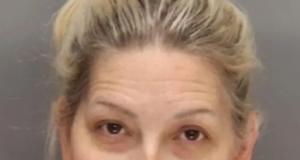China has detained a prominent scholar who helped blind dissident Chen Guangcheng flee to the United States two years ago and has banned books by eight writers in an escalating crackdown on dissent.
Guo Yushan, a founder of the Transition Institute, a think-tank that researches business regulations, reform and civil society, was detained on Thursday, his wife, Pan Haixia, said.
More than 10 police officers took him away along with his laptop, wireless router, mobile phone and iPad, she said.
Guo was instrumental in helping Chen escape house arrest in his village in 2012. Chen traveled to Beijing where he sought refuge at the U.S. embassy, sparking a diplomatic row between China and the United States. Authorities shut down Guo's institute last year.
In a telephone interview, Pan said Guo's detention could be related to the detention of Shi Lin.
Activists describe Shi as an art editor at Peking University and say she was detained after she tried to put up posters on campus expressing support for pro-democracy demonstrations in Hong Kong. In a picture on her Twitter account, she can be seen wearing a face mask with a yellow ribbon on it. The ribbon is a symbol of the protests.
Guo was detained on a charge of "causing a disturbance", according to Pan and his lawyer, Li Jin. Police did not give Pan a reason for Guo's detention. Li said she had applied to meet him but had not heard whether she could.
"We just want to know the truth," Pan said. "We hope the police will investigate this thoroughly and release him quickly."
Police could not be reached for comment.
If charged and convicted, Guo could face up to five years in prison.
'SUSPICIOUS'
The government has convicted and detained several scholars in what activists say is a sustained campaign against dissent. A court in the western region of Xinjiang sentenced economics professor Ilham Tohti to life on separatism charges last month.
Legal scholar Xu Zhiyong was sentenced in January to four years in prison after he campaigned for government officials to disclose their wealth.
Rights groups say dozens of activists supporting the demonstrations in Hong Kong have been detained or intimidated by police.
Maya Wang of New York-based Human Rights Watch said the detentions signaled increasing intolerance of dissent.
"Even very moderate intellectuals who have kept a low profile ... are now being targeted for detentions," Wang said.
Separately, the State Administration for Press, Publication, Radio, Film and Television said on Friday it was banning books by at least eight renowned writers and intellectuals.
The publishing regulator circulated a notice to say that books by the writers, including prominent liberal economist Mao Yushi, were "not to published", according to the notice, obtained by Reuters.
"A national government organ is daring to risk universal condemnation, in open opposition to the constitution," Mao wrote on his microblog. "What is our government actually trying to do? It makes one suspicious."
The other writers whose books were banned include Zhang Qianfan, a constitutional law expert at Peking University and a critic of the Communist Party's grip on the judiciary. Zhang did not answer calls to his mobile phone.
Books by history scholar Yu Yingshi, Taiwan writer Giddens Ko, Hong Kong television personality Leung Man-tao and columnist Xu Zhiyuan were also banned, according to the regulator. It did not say why and did not respond to a faxed query by Reuters.
It also called for authorities to "strictly" control publication of religious books, especially on Tibetan Buddhism, Christianity and Islam.
The Global Times, a nationalist tabloid owned by the party's official newspaper, the People's Daily, said the ban was justified because some on the list had supported "Hong Kong's Occupy Central movement or 'Taiwan independence'," or they opposed China's political system.
"If one has positioned himself at odds to the country's mainstream political path, he shouldn't expect his influence to keep on rising without disruption," the newspaper said.




